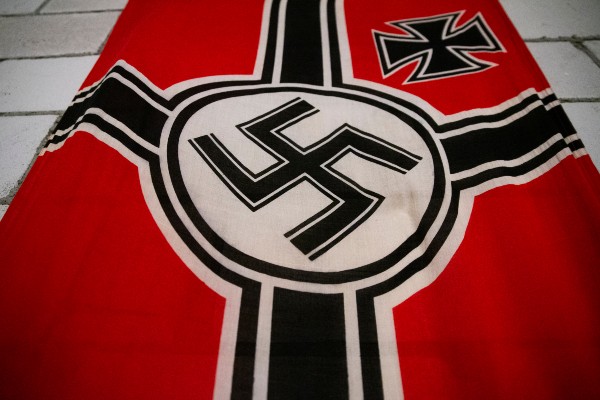Counter-demonstrators turn tables on neo-Nazis.
By Sharon Wrobel, The Algemeiner
A group of about 150 far-right extremists and neo-Nazis marched over the weekend in residential areas of a German town for a torchlight commemoration of Adolf Hitler’s deputy Rudolf Hess, prompting a greater show of force by counter-protestors.
Members and far-right supporters of the German “Third Way” party participated on Saturday in the annual march in the Bavarian town of Wunsiedel to pay tribute to the World War II-era Nazi leader, who was once buried there. About 250 counter protestors responded by taking to the streets to demonstrate against right-wing extremism, according to a local police report.
“With their planned march, the neo-Nazis show their contempt for our history and the victims of the Shoah,” commented Josef Schuster, president of the Central Council of Jews in Germany. “Even more important are the counter rallies. I am happy about every courageous person who opposes right-wing extremists.”
Participants in the counterdemonstrations included members of the network Wunsiedel ist bunt (Wunsiedel is colorful), as well as churches and a grammar school. They gathered at the town’s train station before moving to the city center, police said.
“There is no right to Nazi propaganda, not in Wunsiedel or other places. We stand together against fascism,” the counter-protesters were heard shouting.
For decades, far-right extremists have flocked to Wunsiedel for Hess’ annual commemoration march and to visit his gravestone in the town’s cemetery.
Neo-Nazi groups still gather in the small German town, even though Hess’ remains were exhumed in 2011 and his gravestone — which reads “Ich hab’s gewagt,” or “I have dared” — was destroyed. The removal of his remains followed local residents’ disapproval of Wunsiedel’s status as an annual Nazi pilgrimage site that has led to incidents of unrest.





